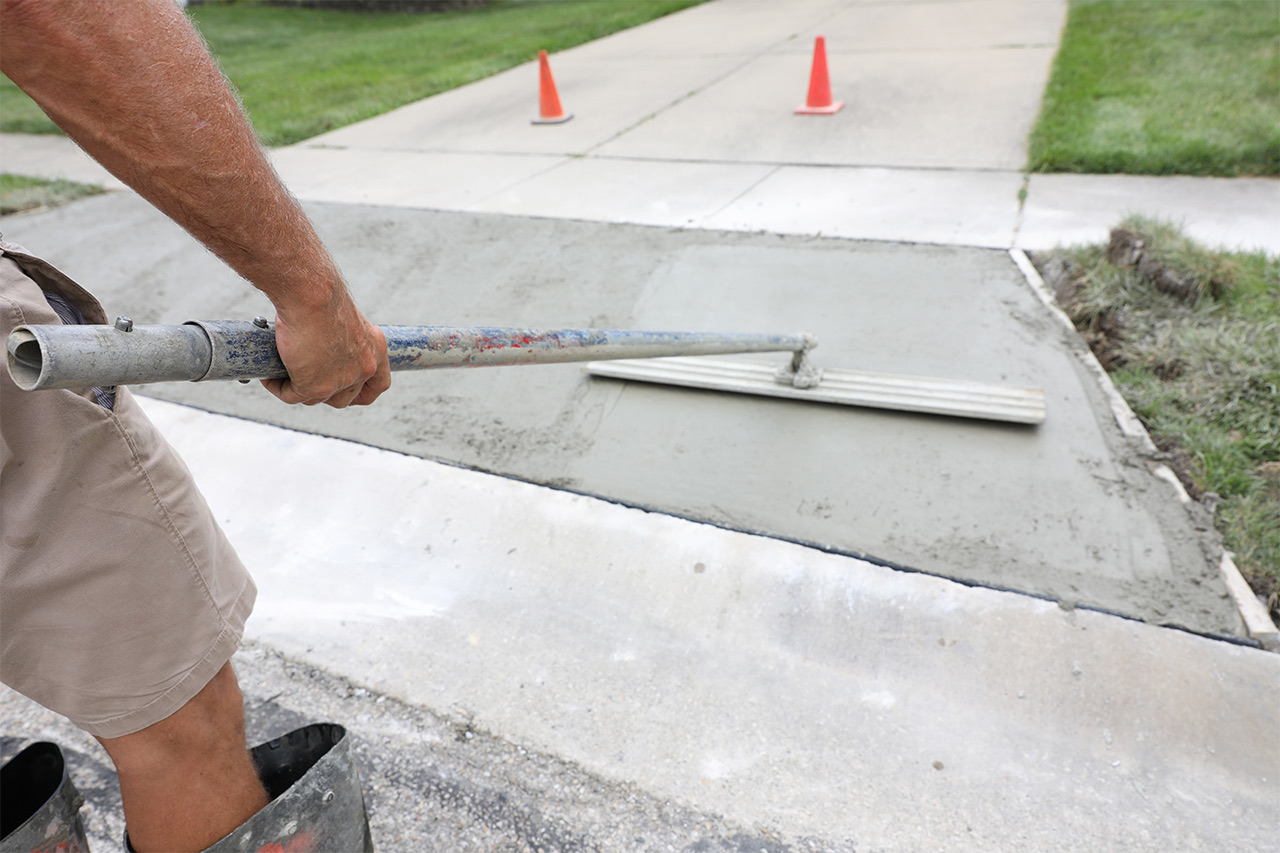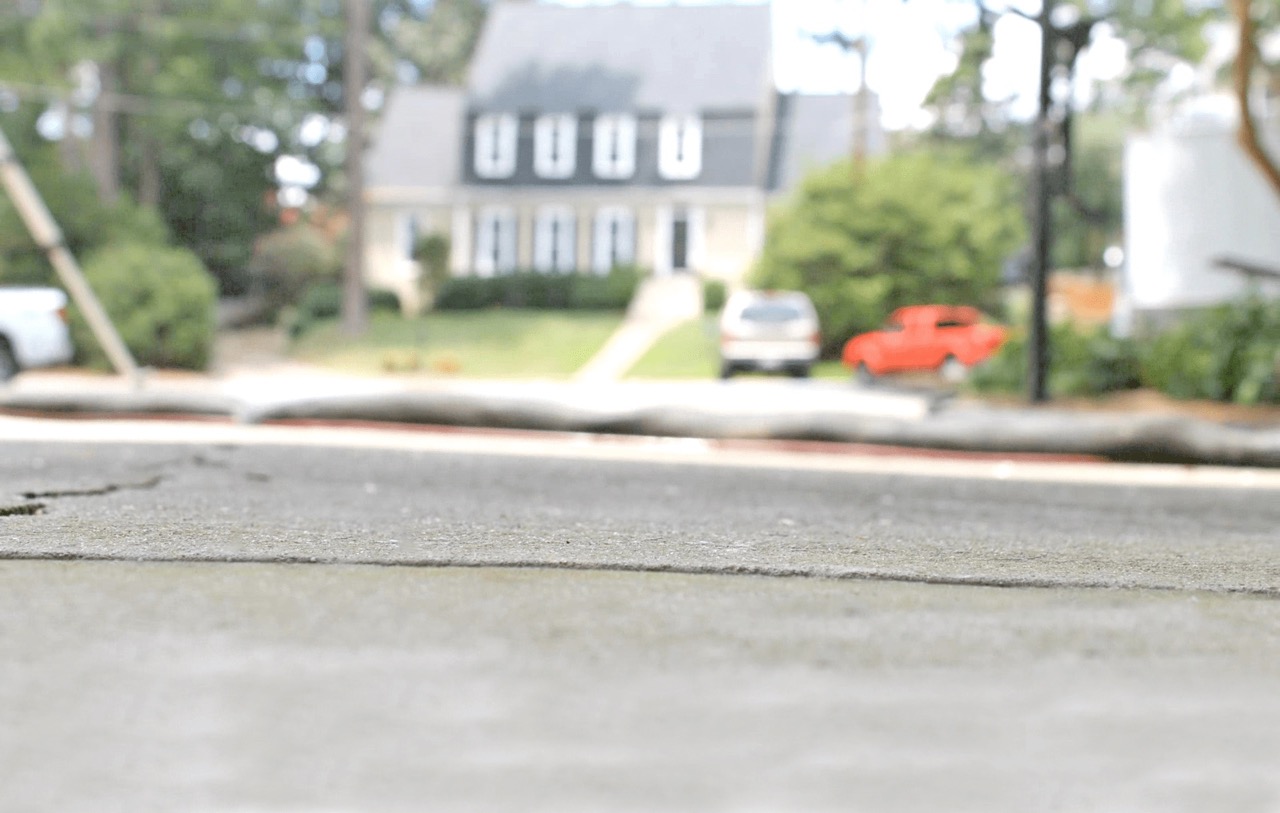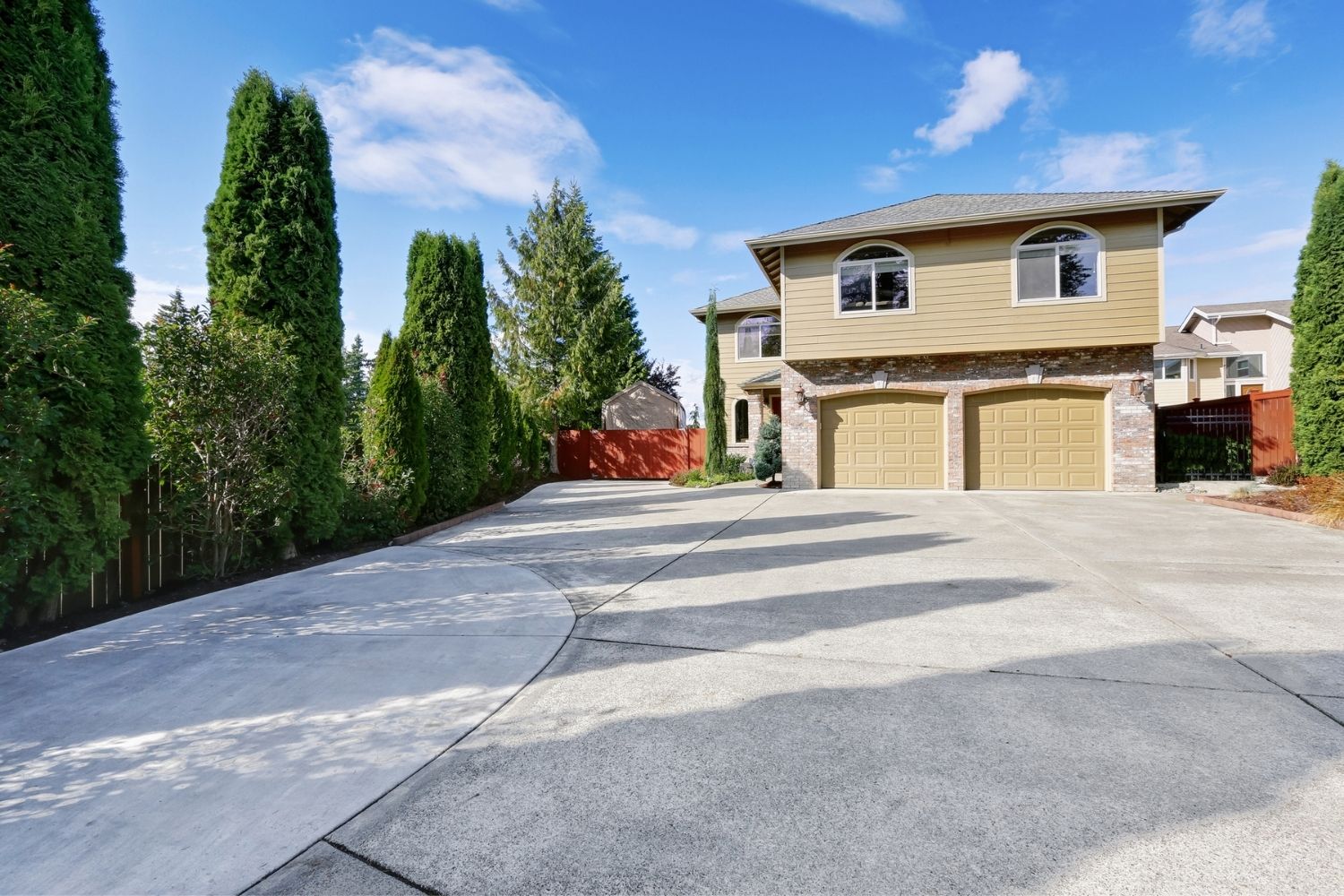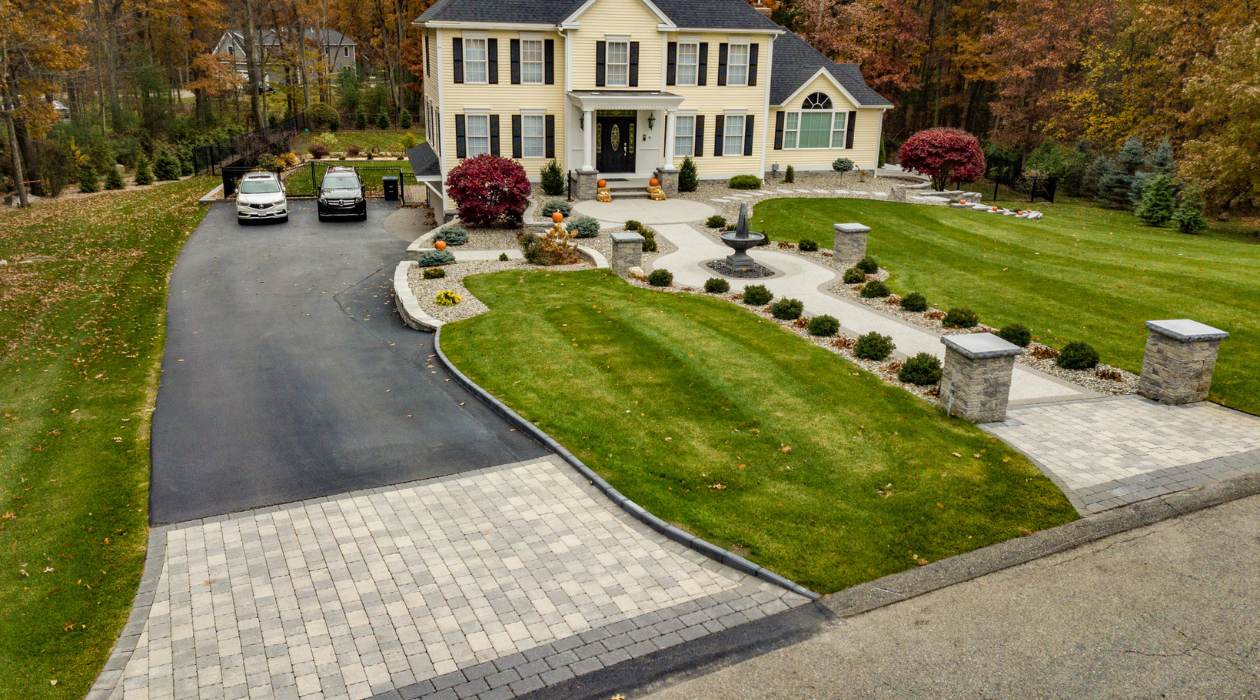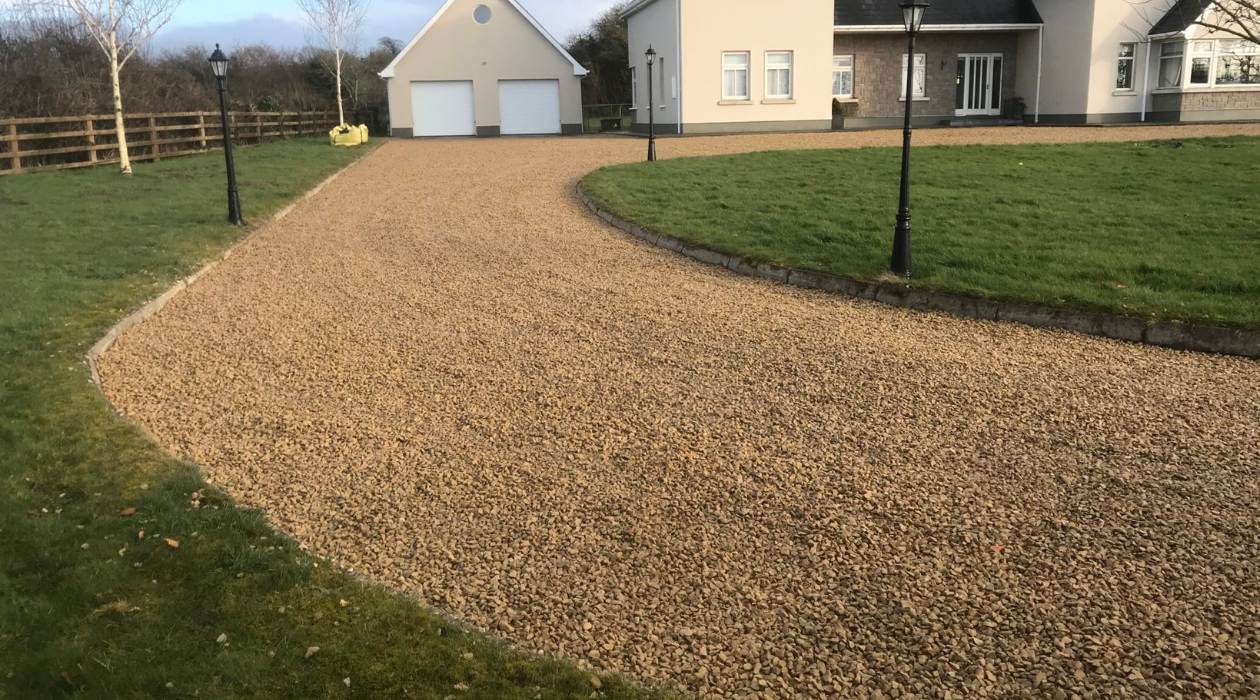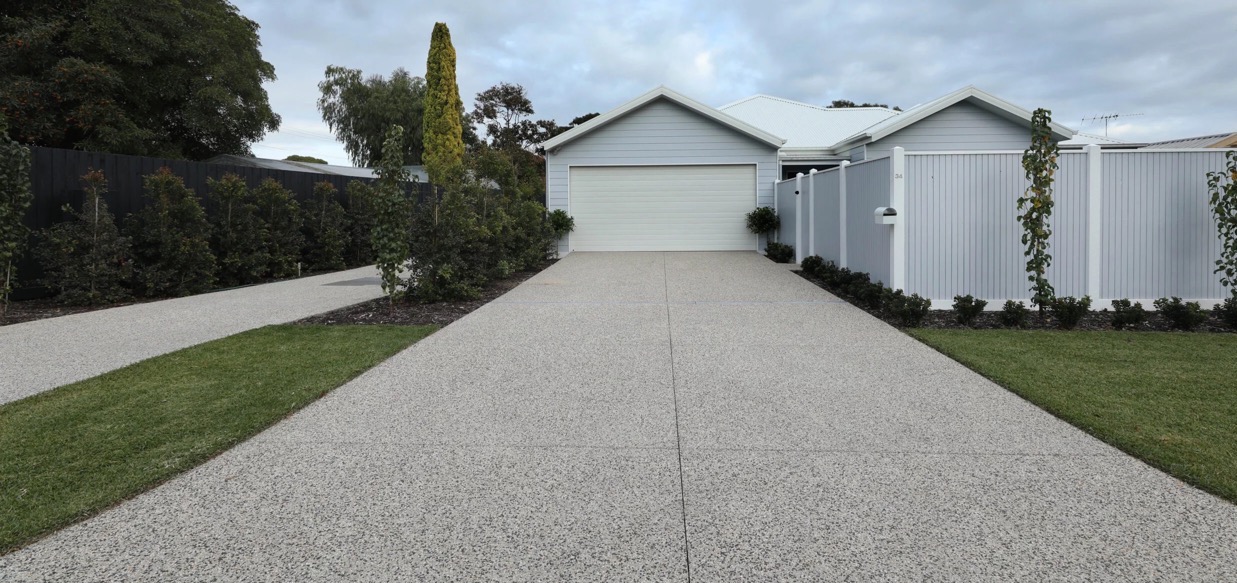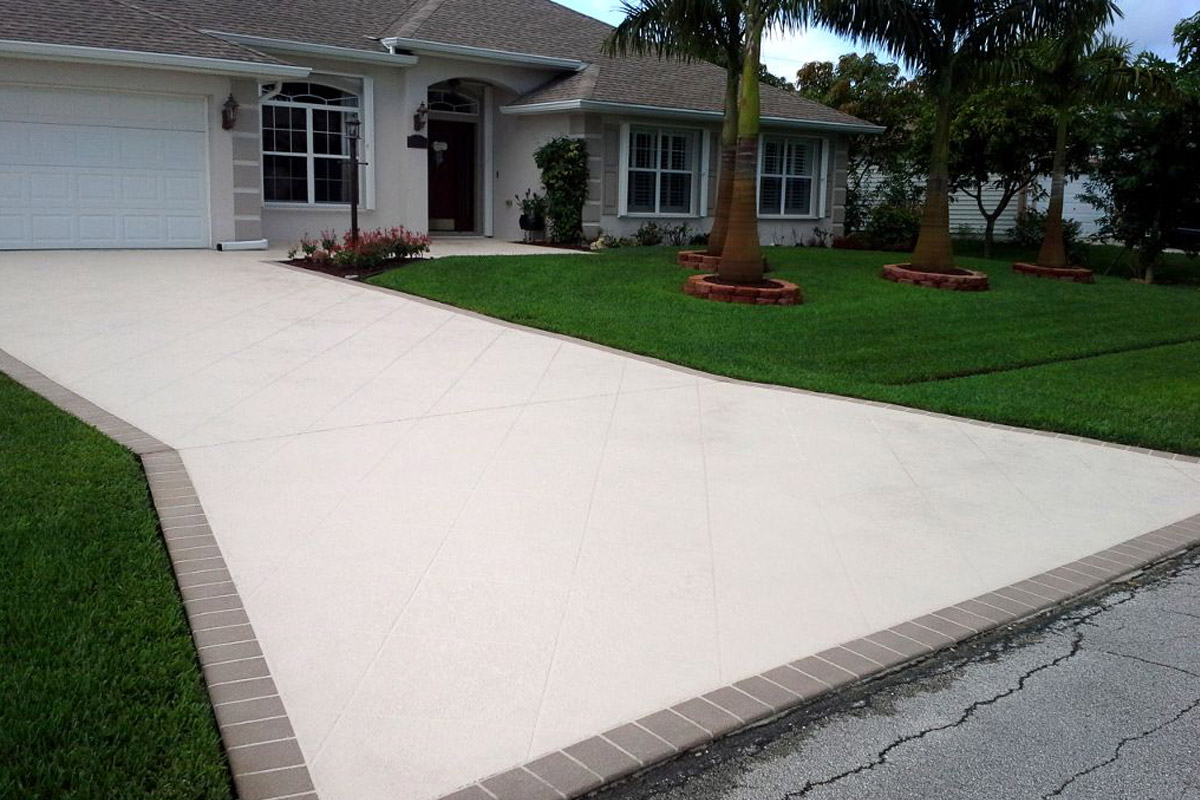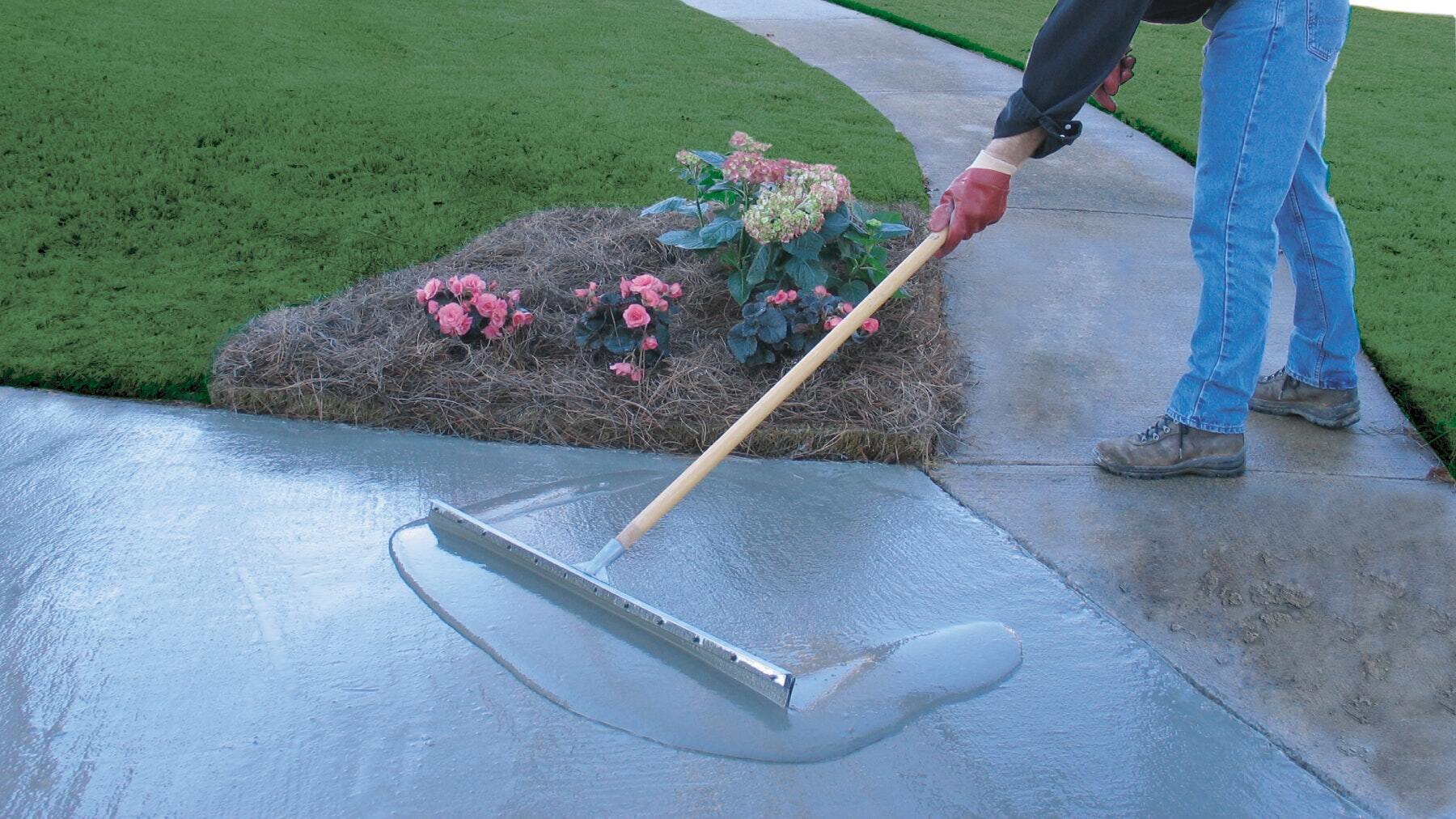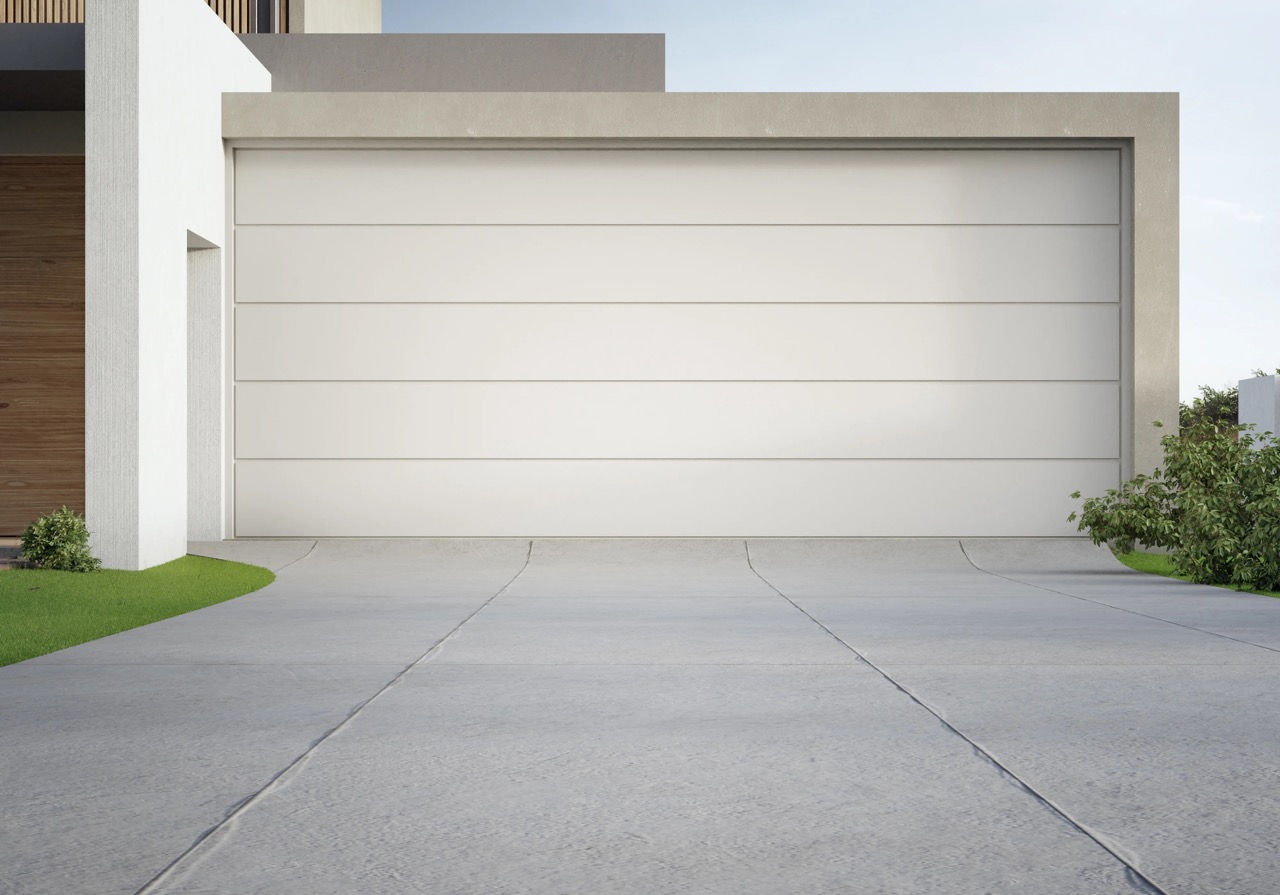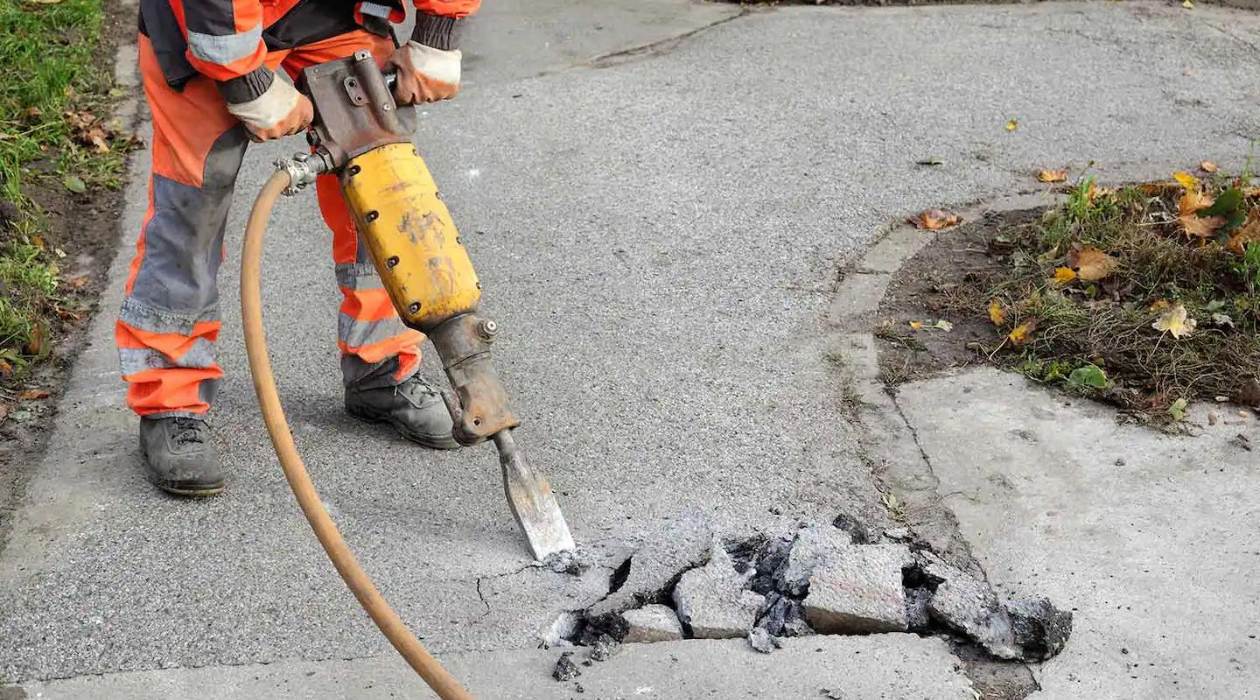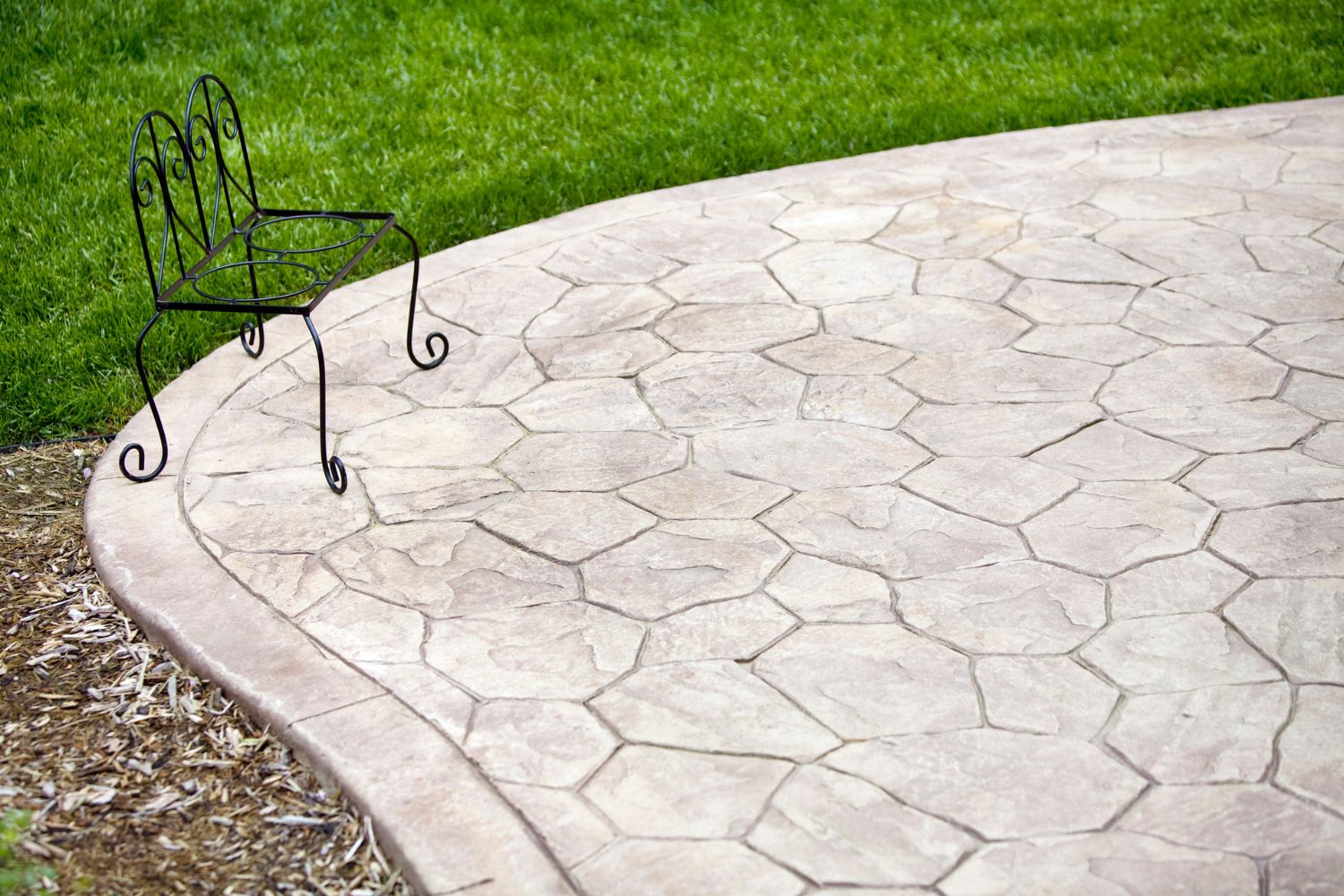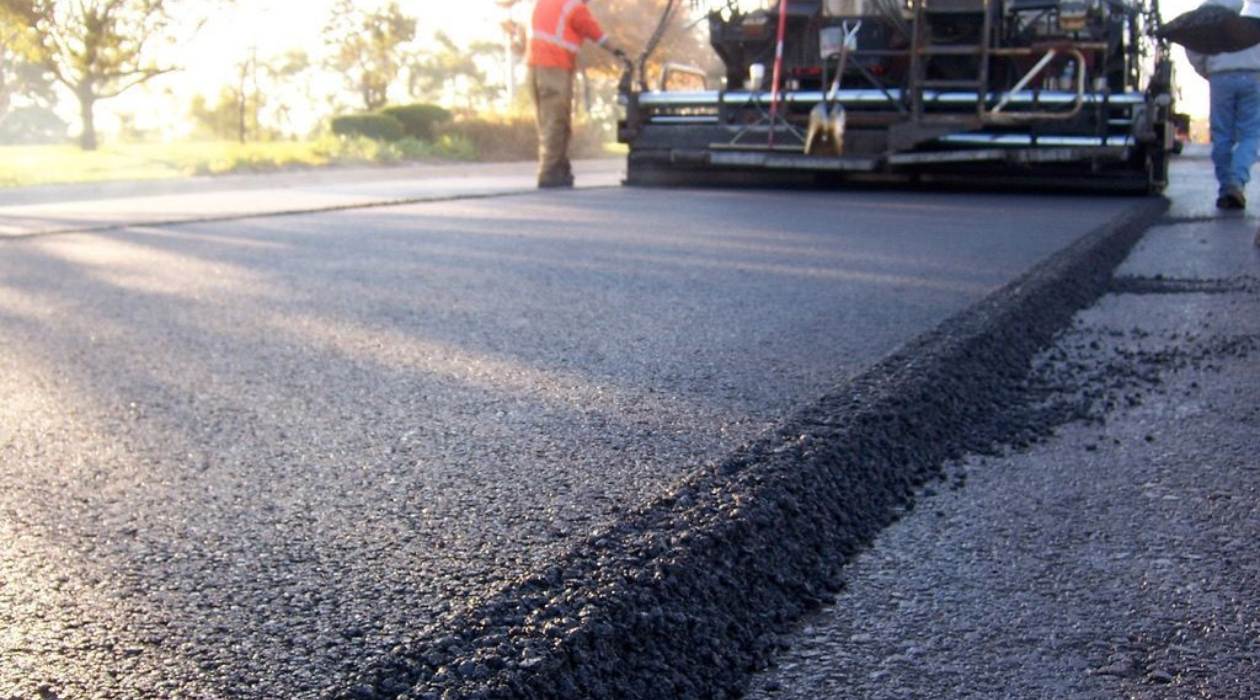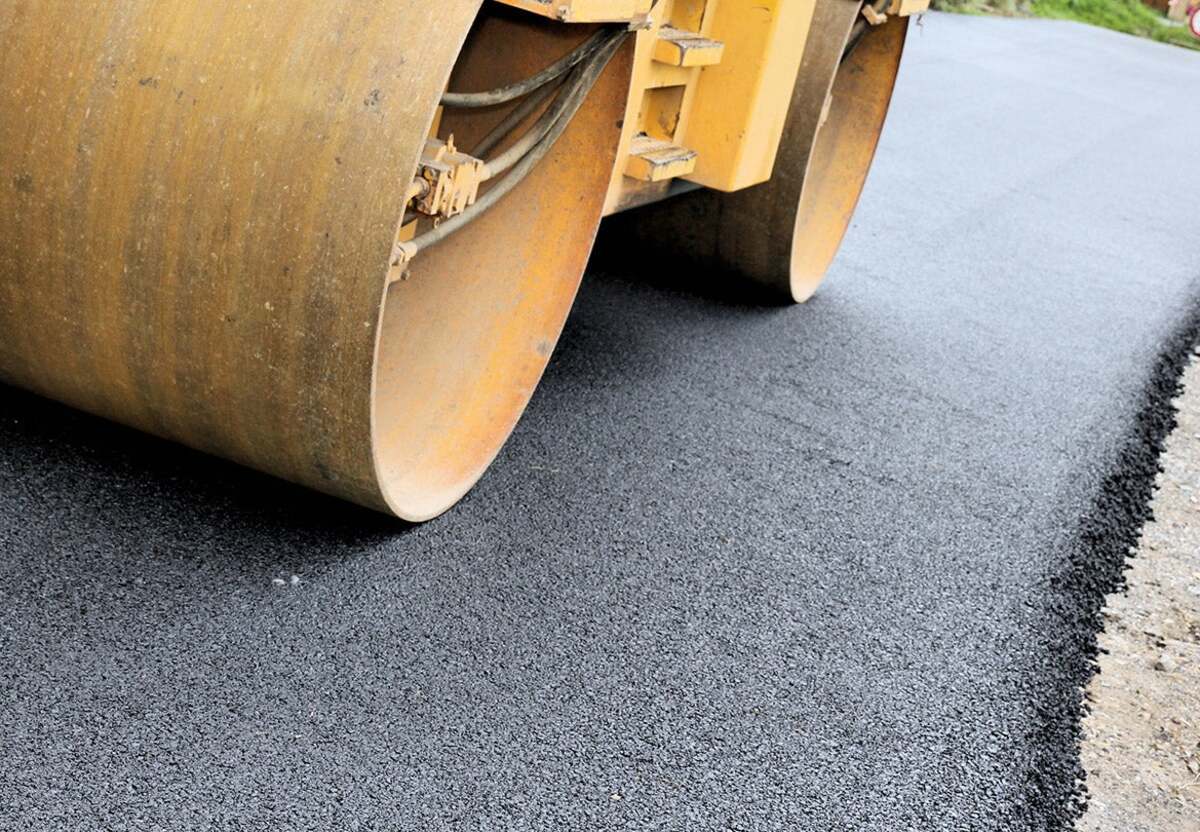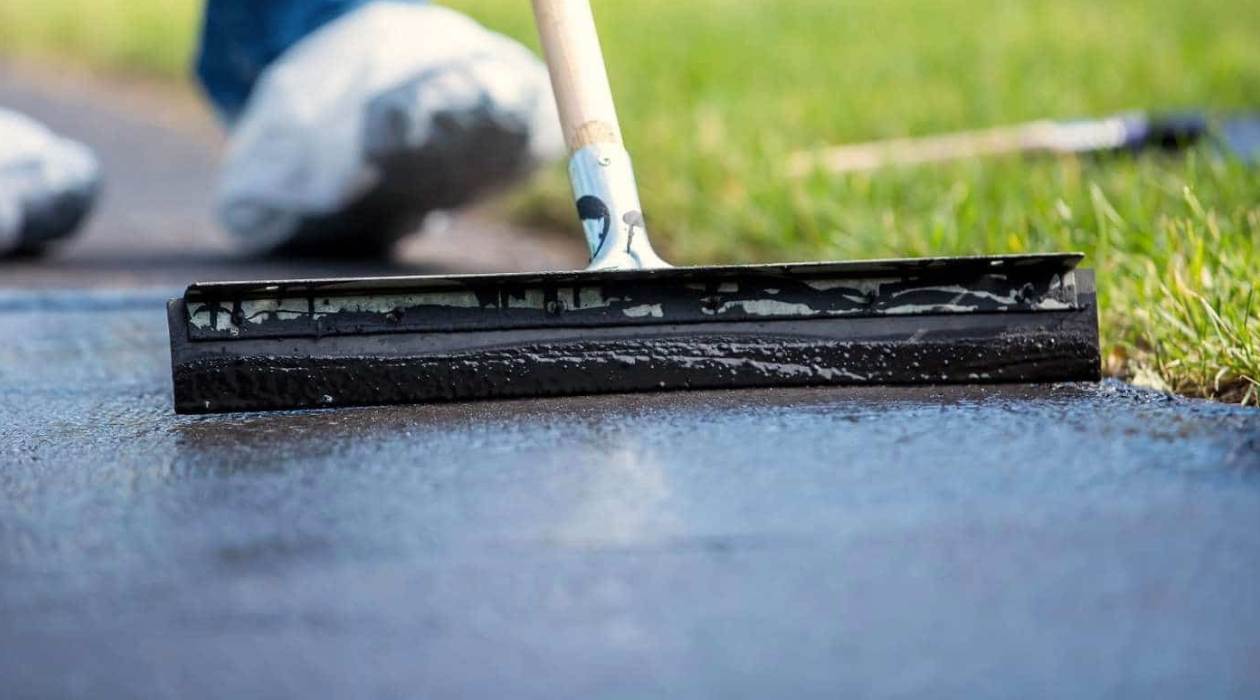Home>Home Maintenance>How Much Does Driveway Repair Cost
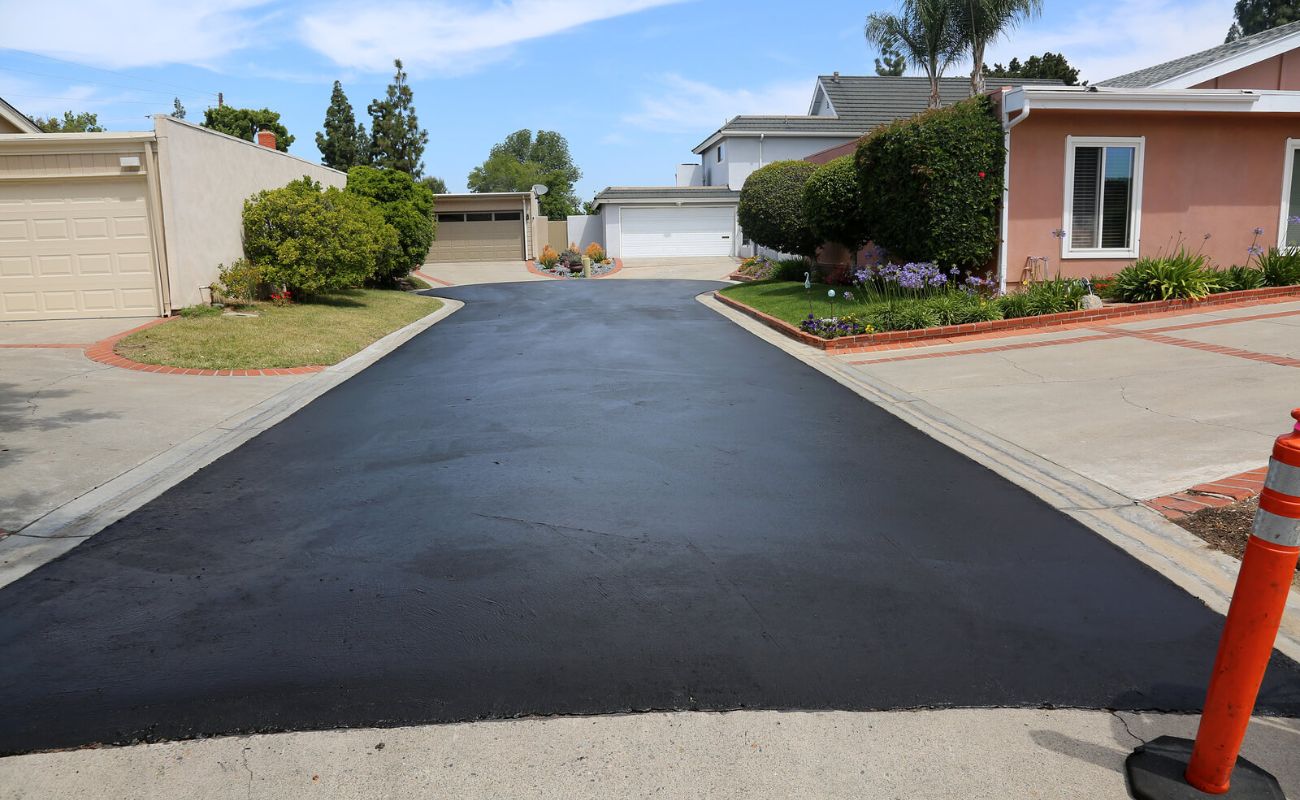

Home Maintenance
How Much Does Driveway Repair Cost
Modified: March 6, 2024
Get an estimate for driveway repair costs and tips for home maintenance. Find out how much it will cost to fix your driveway and keep your property in top shape.
(Many of the links in this article redirect to a specific reviewed product. Your purchase of these products through affiliate links helps to generate commission for Storables.com, at no extra cost. Learn more)
Introduction
Welcome to our comprehensive guide on driveway repairs and the costs associated with them. Whether you have a cracked, uneven, or worn-out driveway, it’s essential to address these issues promptly to ensure the safety and longevity of your home’s exterior. However, before diving into the various repair methods and their associated costs, let’s first understand the factors that can impact the overall expense.
Driveway repair costs can vary significantly depending on several key factors. Factors like the size of the driveway, the type of repairs needed, the materials used, and whether you choose to hire a professional or tackle the project yourself can all influence the overall cost. Understanding these factors will help you make informed decisions and budget accordingly.
In this guide, we’ll discuss common driveway issues, the types of repair methods available, and how to determine the specific costs associated with your project. By the end, you’ll have a clearer understanding of the average costs involved in driveway repairs and whether it’s feasible to undertake the repairs yourself or hire a professional.
So, without further ado, let’s dive into the fascinating world of driveway repairs!
Key Takeaways:
- Driveway repair costs vary based on factors like size, type of repair, materials, and location. DIY repairs can save money, but professional expertise ensures quality and saves time.
- To save on driveway repairs, consider regular maintenance, DIY for small repairs, shopping around for materials, and planning group projects. Prioritize quality to save money in the long run.
Read more: How Much Does A Heated Driveway Cost
Factors Affecting Driveway Repair Costs
Several factors can influence the cost of driveway repairs. By understanding these factors, you’ll be better equipped to estimate the expenses and plan your budget accordingly. Here are the main factors to consider:
- Driveway Size: The size of your driveway plays a significant role in determining the overall cost. Larger driveways require more labor, materials, and time to repair, which can drive up the expenses.
- Type of Repair: The specific repair needed will also impact the cost. Common driveway issues include cracks, potholes, sunken areas, and surface deterioration. The complexity and extent of the repair required will influence the overall cost.
- Materials Used: The materials used in the repair process can vary in cost. For example, filling cracks with basic asphalt patching mix will be less expensive than using specialized sealants or resurfacing the entire driveway with fresh asphalt or concrete.
- Access and Preparation: The accessibility of your driveway and the necessary preparation work can affect the cost. If your driveway is difficult to access or if extensive excavation, cleaning, or leveling is required before repairs can be made, it may increase the overall cost.
- Geographical Location: The location of your property can also impact the cost of driveway repairs. Labor and material costs can vary between regions, so it’s essential to consider the local market rates when estimating expenses.
- Additional Services: If you require additional services alongside driveway repairs, such as surface cleaning, sealing, or re-striping, it will add to the overall cost. These services can help enhance the appearance and durability of your driveway.
- Professional vs. DIY: Choosing between hiring a professional contractor or undertaking the repairs yourself will have cost implications. While DIY repairs can save you money on labor, it’s crucial to evaluate your skills and the complexity of the project to avoid costly mistakes.
Keep in mind that the prices provided in this guide are general averages and can vary depending on your specific circumstances. It is recommended to obtain multiple quotes from reputable contractors to get a more accurate estimate tailored to your unique driveway repair needs.
Now that you have a better understanding of the factors that can influence driveway repair costs, let’s explore the common driveway issues you might encounter.
Common Driveway Issues
Driveways are subjected to wear and tear over time, especially when exposed to heavy vehicles, weather elements, and regular use. Here are some common driveway issues that may require repairs:
- Cracks: Cracks are one of the most common issues and can occur due to various reasons such as age, freeze-thaw cycles, or improper installation. These cracks can start small but can quickly grow wider and longer, compromising the integrity of the driveway.
- Potholes: Potholes are depressions or craters that form on the surface of the driveway. They can occur due to water accumulation, poor drainage, or the repeated impact of heavy vehicles. Potholes not only detract from the overall appearance of your driveway but can also pose a tripping hazard.
- Surface Deterioration: Over time, driveways can start to deteriorate, resulting in a rough, worn-out surface. This deterioration can be caused by factors like weather exposure, UV rays, oil or chemical spills, or inadequate maintenance.
- Sunken Areas: Sunken areas or depressions in your driveway can occur due to soil erosion, inadequate compaction during installation, or heavy loads over time. These sunken areas can lead to poor drainage and may collect water, causing further damage to the driveway.
- Uneven Surface: Uneven surfaces can make your driveway unsafe and uncomfortable to drive on. They can be caused by settling soil, poor installation, or tree roots growing underneath the driveway. An uneven surface can also result in poor water drainage.
Identifying the specific issues with your driveway is crucial before proceeding with repairs. Sometimes, multiple problems can coexist, requiring a comprehensive approach to address all the issues effectively.
Now that you are familiar with the common driveway issues, let’s explore the different methods available for repairing your driveway.
Types of Driveway Repair Methods
When it comes to repairing your driveway, several methods can be employed based on the nature and extent of the damage. Here are some common driveway repair methods:
- Crack Filling: For small cracks, crack filling is an effective repair method. It involves filling the cracks with a specialized liquid filler or an asphalt patching mix. This helps prevent further water penetration and stops the cracks from expanding.
- Pothole Patching: Potholes can be repaired by cleaning the area, filling it with a pothole patching material, and compacting it to ensure a smooth surface. This method helps restore the structural integrity and appearance of the driveway.
- Resurfacing: If your driveway has extensive surface deterioration, resurfacing may be the best solution. It involves applying a new layer of asphalt or concrete over the existing driveway. This method provides a fresh, smooth surface and helps extend the lifespan of your driveway.
- Overlay: Similar to resurfacing, overlaying involves the application of a new layer of asphalt or concrete. However, it is typically used when the existing driveway is thick enough and in reasonably good condition. Overlaying can help enhance the aesthetics and longevity of the driveway.
- Slab Jacking: Slab jacking is useful when dealing with sunken areas or uneven surfaces in concrete driveways. It involves injecting a specialized material under the sunken slabs to raise them and restore the proper levelness.
- Sealcoating: Sealcoating is a preventive maintenance method that helps protect the driveway surface from further damage. It involves applying a protective sealant over the asphalt surface, providing a barrier against UV rays, water penetration, and chemical spills.
It is essential to determine the most appropriate repair method for your specific driveway issues. Factors like the severity of damage, budget, and long-term goals should be considered when deciding on the repair method.
Now that you are familiar with the types of driveway repair methods available, let’s delve into the cost breakdown to help you plan your budget accordingly.
Get multiple quotes from different contractors to compare prices for driveway repair. Consider the materials needed, labor costs, and any additional fees. Don’t just go with the cheapest option, make sure to also consider the quality of work and the contractor’s reputation.
Driveway Repair Cost Breakdown
The cost of repairing your driveway can vary depending on several factors, including the size of your driveway, the type of repairs needed, the materials used, and whether you hire a professional or opt for a DIY approach. Here is a breakdown of the typical costs associated with driveway repairs:
- Crack Filling: The cost of crack filling can range from $0.50 to $3 per linear foot, depending on the size and depth of the cracks and the type of filler used. For larger cracks or those requiring professional assistance, the cost can be higher.
- Pothole Patching: Pothole repairs usually cost around $100 to $300 per pothole, depending on its size and depth. If you have multiple potholes, the cost can add up. Hiring a professional may incur additional labor charges.
- Resurfacing: The cost of resurfacing an asphalt driveway can range from $2 to $5 per square foot, while concrete driveway resurfacing can cost between $4 and $8 per square foot. Factors like the condition of the existing driveway and the thickness of the new layer can affect the overall cost.
- Overlay: Overlaying an asphalt or concrete driveway typically costs around $2 to $4 per square foot. This includes the cost of materials and labor. Keep in mind that if the existing driveway requires extensive repairs before overlaying, the cost can be higher.
- Slab Jacking: Slab jacking for concrete driveways can range from $3 to $7 per square foot. Factors like the number of sunken slabs and the accessibility of the area can impact the overall cost.
- Sealcoating: Sealcoating typically costs around $0.15 to $0.25 per square foot for asphalt driveways. This cost may vary depending on the size of the driveway and the quality of the sealant used.
It’s important to note that these costs are estimates and can vary based on location, market rates, and other specific factors. Additionally, hiring a professional contractor may come with additional fees for equipment, labor, and warranty coverage.
Now that you have an idea of the typical costs associated with driveway repairs, let’s explore the pros and cons of DIY repairs versus hiring a professional.
Read more: How Much Does It Cost For A Paver Driveway
DIY vs. Hiring a Professional
When it comes to driveway repairs, you have the option of either taking a do-it-yourself (DIY) approach or hiring a professional contractor to handle the job. Each option has its advantages and considerations. Let’s explore the pros and cons of both:
DIY Repairs:
- Cost Savings: One of the main advantages of DIY repairs is the potential cost savings. By taking on the repairs yourself, you can avoid paying for labor costs, which can constitute a significant portion of the overall expense.
- Flexibility and Convenience: DIY repairs allow you to work at your own pace and schedule. You can pick a time that is convenient for you and work through the repairs at your own speed.
- Learning Experience: Repairing your driveway on your own can be a valuable learning experience. It gives you an opportunity to understand the intricacies of driveway repair and gain hands-on knowledge that may come in handy for future maintenance needs.
However, it’s important to consider the potential drawbacks of DIY repairs:
- Skills and Expertise: Driveway repairs may require specific skills, techniques, and specialized tools. If you lack experience or are unfamiliar with the repair process, DIY repairs can be challenging and lead to unsatisfactory results.
- Time and Effort: Repairing a driveway can be a time-consuming and physically demanding task. Depending on the extent of the repairs needed, it may require significant effort and multiple days to complete the project on your own.
- Potential Mistakes: Incorrectly executing repairs can result in further damage and increased costs in the long run. Improper filling of cracks, inadequate compaction of materials, or insufficient preparation can lead to premature deterioration of the driveway.
Hiring a Professional:
- Expertise and Experience: Professional contractors have the necessary skills, knowledge, and experience to handle driveway repairs effectively. They can assess the specific issue, recommend the most suitable repair method, and ensure high-quality results.
- Time-Efficient: Hiring professionals saves you time and effort. They have the expertise and equipment to complete the repairs efficiently, reducing the overall project duration and minimizing disruption to your daily routines.
- Warranty and Guarantee: Reputable contractors often provide warranties or guarantees for their work. This gives you peace of mind knowing that if any issues arise after the repairs, the contractor will address them without additional costs.
However, there are some considerations when hiring a professional:
- Higher Costs: Hiring a professional contractor for driveway repairs typically comes with additional costs for labor, equipment, and expertise. You should factor these costs into your budget when comparing the DIY approach.
- Dependency on Contractor: When hiring a professional, you rely on their availability and scheduling. It’s crucial to communicate your priorities and expectations upfront to ensure the project aligns with your timeline.
Ultimately, the decision between DIY repairs and hiring a professional depends on your skills, time availability, budget, and comfort level with undertaking the project yourself. Evaluating these factors will help you make an informed decision that best suits your needs.
Now, let’s explore some cost-saving tips to help you reduce the overall expenses of driveway repairs.
Cost-saving Tips for Driveway Repair
Repairing your driveway doesn’t have to break the bank. With some careful planning and smart choices, you can save money on your driveway repair project. Here are some cost-saving tips to consider:
- Regular Maintenance: By implementing a routine maintenance plan for your driveway, you can prevent small issues from turning into major repairs. Regularly clean your driveway, fill small cracks promptly, and address any drainage issues to avoid more significant problems down the line.
- DIY (Where Applicable): If you have the necessary skills and tools, consider tackling smaller repairs yourself. Simple crack filling or minor pothole patching can often be done as a DIY project, saving you money on labor costs.
- Shop Around for Materials: Take the time to compare prices and quality of materials needed for your driveway repairs. Get multiple quotes from different suppliers to ensure you’re getting the best deal without compromising on the quality of materials.
- Consider Recycled Materials: In some cases, using recycled materials can be a cost-effective option. Recycled asphalt and concrete can provide a more affordable alternative to new materials, while still delivering satisfactory results.
- Plan a Group Project: If multiple neighbors or friends in your community need driveway repairs, consider working together to negotiate a better rate with a contractor. Group projects can often result in discounts or reduced labor costs.
- Get Multiple Quotes: When hiring a professional contractor, always obtain multiple quotes. This allows you to compare prices, services offered, and warranties provided. However, be cautious of unusually low quotes, as they may indicate subpar workmanship or the use of inferior materials.
- Combine Repairs: If your driveway has multiple issues like cracks, potholes, or surface deterioration, consider bundling these repairs together. Combining repairs can help reduce overall costs by minimizing mobilization fees and maximizing the efficiency of the contractor’s work.
- Proactive Planning: If you anticipate needing extensive repairs in the future, start budgeting and saving early. Planning ahead allows you to allocate funds gradually, reducing the financial burden when the repairs become necessary.
- Proper Drainage: Ensure that your driveway has proper drainage to prevent water damage and prolong its lifespan. Poor drainage can lead to deterioration and the need for more repairs. Consider installing additional drainage solutions or diverting water away from the driveway to mitigate these issues.
Remember, while cost-saving is important, it’s essential not to compromise on the quality and longevity of the repairs. Investing in high-quality materials and reputable contractors will ultimately save you money in the long run by reducing the need for frequent repairs.
By implementing these cost-saving tips, you can make your driveway repair project more affordable without jeopardizing the overall effectiveness and durability of the repairs.
Now, let’s conclude our guide on driveway repairs.
Conclusion
Repairing your driveway is an essential part of home maintenance that ensures the safety and longevity of your property. By understanding the factors affecting driveway repair costs, familiarizing yourself with common driveway issues, and exploring the various repair methods available, you are better equipped to assess the specific needs of your driveway and plan your budget accordingly.
Factors such as the size of your driveway, type of repairs needed, materials used, and geographical location can all impact the overall cost of the project. It’s important to consider these factors when estimating expenses and obtaining quotes from professional contractors.
When deciding between a DIY approach or hiring a professional, it’s important to consider your skills, time availability, and budget. While DIY repairs can save you on labor costs, it’s crucial to assess your expertise and the complexity of the repairs. Hiring a professional ensures expert craftsmanship, saves you time and effort, and may come with warranties or guarantees for the work performed.
To make your driveway repair project more affordable, consider regular maintenance, DIY repairs where applicable, shopping around for materials, and exploring cost-saving alternatives like recycled materials. Additionally, planning a group project with neighbors or friends and combining multiple repairs can help reduce overall costs.
Remember, while it’s important to save money, it’s equally vital to prioritize the quality and longevity of the repairs. Investing in reputable contractors and high-quality materials will ultimately save you money in the long run by minimizing future repairs.
We hope this comprehensive guide has provided you with valuable insights into driveway repairs and the factors that can impact the cost. Armed with this knowledge, you can make informed decisions and effectively address any issues with your driveway, ensuring a safe and beautiful entrance to your home.
Thank you for reading, and we wish you success with your driveway repair project!
Frequently Asked Questions about How Much Does Driveway Repair Cost
Was this page helpful?
At Storables.com, we guarantee accurate and reliable information. Our content, validated by Expert Board Contributors, is crafted following stringent Editorial Policies. We're committed to providing you with well-researched, expert-backed insights for all your informational needs.
